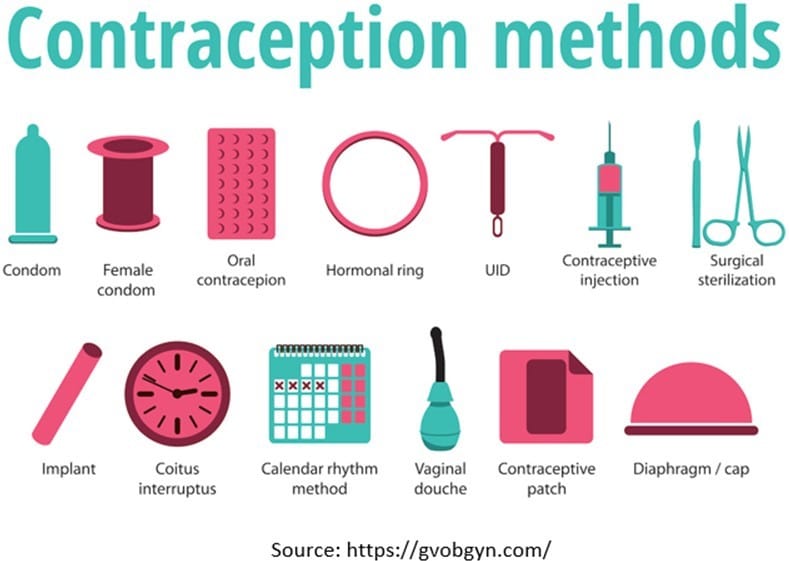In This Article
Can you get pregnant despite following birth control measures?
Couples that are getting married young more often go in for planned pregnancies. In other words, they want to choose a time perfect in their lives for having a child. All parents aspire to provide a secure environment and stability to their children.
Getting there takes time, so the couples choose to wait before getting pregnant. There are various products and procedures available for men and women to keep pregnancy at bay.
Only an expert gynecologist will help you narrow down when choosing the right one.
Dr. Himali Maniar is the leading gynecologists who has founded the Nisha IVF Center. It is one of the best IVF centers in Ahmedabad, which promises you excellent chances of pregnancy success whenever you plan to go for it.
Dr. Maniar explains that there are instances when certain birth control measures are hard to follow, and there are chances that you may get pregnant.
This article will discuss the different birth control methods and their pros and cons. Also, we will discuss here how you can go from being on birth control measures to getting pregnant and starting a family.

What are the different birth control measures?
There are several methods that a couple can choose to follow birth control. Speak to your gynecologist for help and consultation. Some are mentioned below with their pros and cons.
The Birth Control Pill:
Most women highly depend on oral contraceptive pills as their efficacy is almost 100% if taken regularly without fail.
But, most women forget to take the pill regularly, which puts them at risk of getting pregnant.
However, this is not the only reason that the OCP fails. It may also fail due to other factors like certain medicines preventing the OCPs from doing their job, obesity, or maybe a simple case of stomach issues where you have been vomiting and passing motions for more than 48 Hrs.
It is wise to back up the OCP’s with condoms.
If you have missed a dose, take a pill as soon as you remember.
If you are dependent on just the Progestin pill, you will have to maintain a strict schedule of taking the pill in the same 3-hour window every day.
Rings and patches:
Vaginal rings or body patches are similar to OCPs in terms of functioning and efficacy of 99%.
These need to be replaced on time every month. If the ring comes out or the patch falls off, there are chances of failure.
Other than that, as mentioned above, if you are obese or using specific medication that prevents the rings and patches from functioning as they should, you may be at the risk of getting pregnant.
Birth Control Injections:
Progestin hormone injections work wonders for women who are too busy to remember taking a pill.
Dr. Himali Maniar explains that this injection is administered once every 3 months and has excellent effectiveness.
If you forget to take a follow-up shot within 15 weeks, it is wise to use backup birth control measures for a week.
Birth control implant:
This is a long-term birth control method. The gynecologist will insert an implant the size of a match-stick.
This implant releases hormones that prevent pregnancy.
Even after 3 years you still do not wish to conceive, then do remember to get it replaced on time.
IUD’s:
An intrauterine device, as the name suggests, is inserted by the doctor into your vagina. It stops the sperm from reaching the egg. They are efficient in their use. They can be suitable for as good as 10 years unless it slips out of position, causing a chance of pregnancy.
Get yourself evaluated thoroughly in such circumstances as it may result in an ectopic pregnancy (Pregnancy out of the uterus).
Also, even if the pregnancy is normal, the device still has to be taken out to avoid miscarriage.
Vaginal Contraceptives:
The concept of vaginal contraceptives is to create a hostile environment for the sperm to die before reaching the egg. There are available in various forms like creams, foams, jelly, or suppository.
You need to apply it at least 15 minutes before for it to work with maximum benefit.
Usually, during sex, the PH level of the vaginal mucous is high to facilitate sperm movement. These applications change the PH levels to kill the sperm in the vagina itself.
Barrier methods:
To keep it concise, it means that you can either use condoms or cervical caps or both, whichever suits you as birth control methods.
Knowing your fertility cycle:
Keeping track of your ovulation cycle is a natural way of family planning. You need not use any hormone regulators to avoid pregnancy.
Dr.Himali Maniar advises you to speak to your gynecologist for a proper guideline if you wish to go the natural way.
Maintaining a chart of your menstrual cycle, check your body temperature, and a strict vigil of your cervical mucus helps in birth control for women who have regular menstrual cycles.
It is not recommended for women with an irregular menstrual cycle.
Having discussed the birth control methods, of course, a word of advice from Dr. Himali Maniar is that you should not delay your pregnancy beyond 30 years of age as getting pregnant after thirty is difficult and needs medical assistance in some cases.
At Nisha IVF center in Ahmedabad, you will receive the best options for assisted fertilization with a good chance of success.
Getting pregnant after birth control measures takes at most a year. It ultimately depends on your genes since the birth control measures do not affect your fertility. Usually, women stand a good chance of getting pregnant within the first 3 months of stopping all birth control measures.










![Home Renovation Guide [2025]](/app/uploads/2021/04/design-hacks-1-378x300.jpg)
